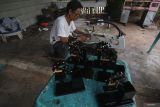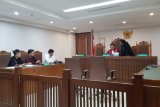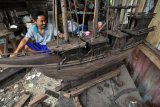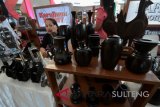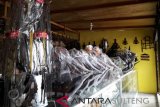Central Sulawesi Trying To Boost Ebony Population
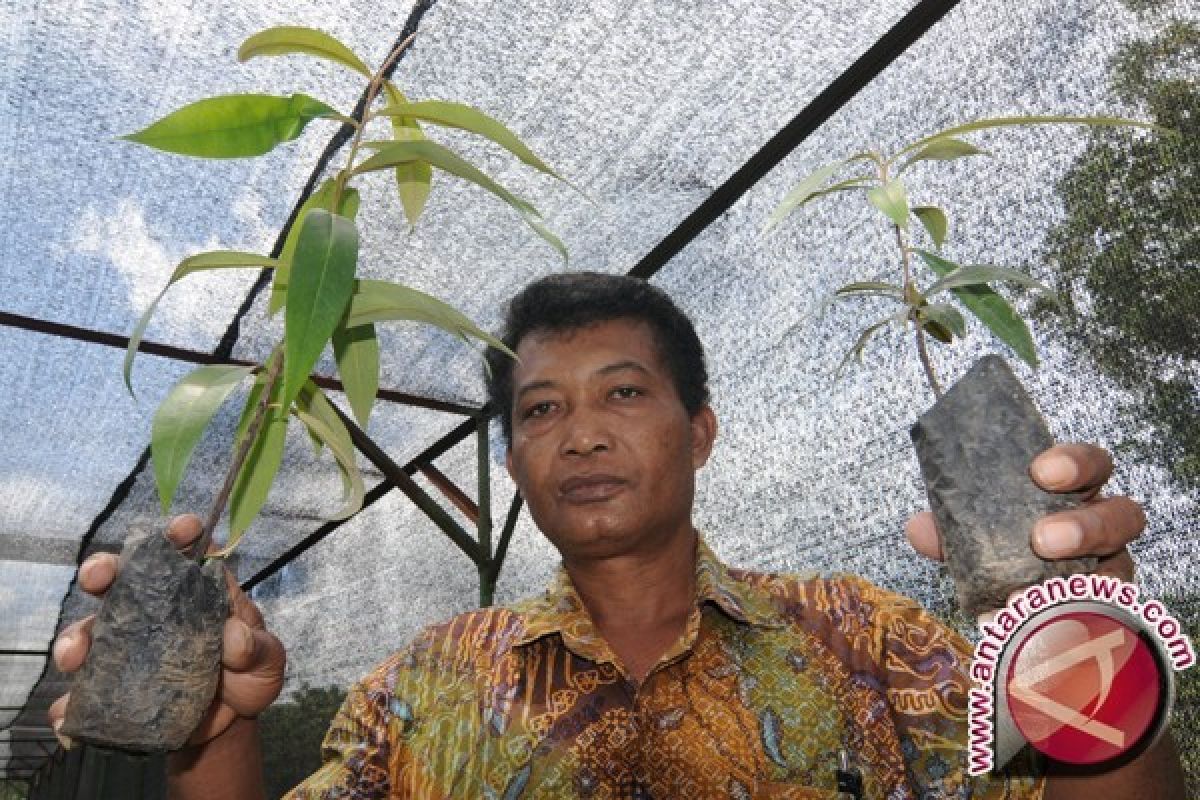
Petugas menunjukkan bibit tanaman kayu hitam atau kayu eboni (Diospyros celebica) berumur satu tahun di Pusat Persemaian Permanen Balai Pengelolaan DAS Palu-Poso Kampus Bumi Roeviga Universitas Tadulako, Palu, Sulawesi Tengah,(ANTARAFOTO/Basri Marzuki)
Palu, C.Sulawesi, (antarasulteng.com) - The Central Sulawesi provincial administration within the last few years has been trying to re-populate black ebony (Diospyros celebica) through a replanting program.
"The population of ebony in Central Sulawesi has decreased over time," the Head of the Provincial Forestry Office, Nahardi said here on Thursday.
Ebony is Sulawesi`s endemic wood. In Central Sulawesi, the population is declining as ebony continues to be exploited for business purposes because of its high price.
To increase the population of the plant, whose age could reach 100 of years old, the provincial administration in recent years has continued to intensify the ebony replanting program.
The replanting of ebony is carried out through a forest and land rehabilitation program started in every district and city.
In 2015, the forestry office of Central Sulawesi had planted 50,000 ebony trees in Donggala.
In Palu city, replanting was carried out in the Poboya Forest Park over an area of 7,000 hectares.
The price of ebony abroad could reach Rp30 million per cubic meter, while in Indonesia, it ranges from Rp6 million to Rp10 million per cubic meter.
"Ebony wood in Central Sulawesi can be found in Donggala, Parigi Moutong, Poso, Tojo, and Morowali," Nahardi noted.
Data obtained from the provincial forest office shows that the ebony plantation area in Central Sulawesi is about 1.2 million hectares, spread across primary and secondary forests, with an estimated timber volume of about 3.1 million cubic meters.
"The population of ebony in Central Sulawesi has decreased over time," the Head of the Provincial Forestry Office, Nahardi said here on Thursday.
Ebony is Sulawesi`s endemic wood. In Central Sulawesi, the population is declining as ebony continues to be exploited for business purposes because of its high price.
To increase the population of the plant, whose age could reach 100 of years old, the provincial administration in recent years has continued to intensify the ebony replanting program.
The replanting of ebony is carried out through a forest and land rehabilitation program started in every district and city.
In 2015, the forestry office of Central Sulawesi had planted 50,000 ebony trees in Donggala.
In Palu city, replanting was carried out in the Poboya Forest Park over an area of 7,000 hectares.
The price of ebony abroad could reach Rp30 million per cubic meter, while in Indonesia, it ranges from Rp6 million to Rp10 million per cubic meter.
"Ebony wood in Central Sulawesi can be found in Donggala, Parigi Moutong, Poso, Tojo, and Morowali," Nahardi noted.
Data obtained from the provincial forest office shows that the ebony plantation area in Central Sulawesi is about 1.2 million hectares, spread across primary and secondary forests, with an estimated timber volume of about 3.1 million cubic meters.


